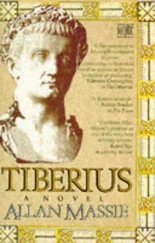Allan Massie - Nero_s Heirs
Здесь есть возможность читать онлайн «Allan Massie - Nero_s Heirs» весь текст электронной книги совершенно бесплатно (целиком полную версию без сокращений). В некоторых случаях можно слушать аудио, скачать через торрент в формате fb2 и присутствует краткое содержание. Жанр: Исторические приключения, на английском языке. Описание произведения, (предисловие) а так же отзывы посетителей доступны на портале библиотеки ЛибКат.
- Название:Nero_s Heirs
- Автор:
- Жанр:
- Год:неизвестен
- ISBN:нет данных
- Рейтинг книги:3 / 5. Голосов: 1
-
Избранное:Добавить в избранное
- Отзывы:
-
Ваша оценка:
- 60
- 1
- 2
- 3
- 4
- 5
Nero_s Heirs: краткое содержание, описание и аннотация
Предлагаем к чтению аннотацию, описание, краткое содержание или предисловие (зависит от того, что написал сам автор книги «Nero_s Heirs»). Если вы не нашли необходимую информацию о книге — напишите в комментариях, мы постараемся отыскать её.
Nero_s Heirs — читать онлайн бесплатно полную книгу (весь текст) целиком
Ниже представлен текст книги, разбитый по страницам. Система сохранения места последней прочитанной страницы, позволяет с удобством читать онлайн бесплатно книгу «Nero_s Heirs», без необходимости каждый раз заново искать на чём Вы остановились. Поставьте закладку, и сможете в любой момент перейти на страницу, на которой закончили чтение.
Интервал:
Закладка:
He spoke in a manner which would have appeared absurdly boastful in the Divine Augustus himself. No man of sense or judgement could listen to him without feeling contempt. Yet the mob, mindless of how they had cheered Otho a few weeks before, and being unable or unwilling to distinguish between truth and falsehood, were delighted. They raised loud huzzas and, since they had long ago learned how to flatter Emperors, begged him to assume the name and title of Augustus. He graciously assented. At any rate, I suppose his assent was intended to seem gracious. To my mind, as he swelled with self-importance and swayed, as a result either of emotion or wine, so that, when he tried to raise his hands, they had to be supported above his head by his attendants, he appeared ridiculous.
Then he announced that there should be a great public feast and that he himself would bear all its cost. Nothing offered clearer testimony to the corruption of the times than this; for many remembered that when Vitellius had set out to assume command on the Rhine, he had left his wife and children in a rented attic in a poor quarter of the city, and had financed his journey by pawning a pair of pearl ear-rings, belonging to his mother. Some said he had torn the jewels from her ears; others that he had stolen them while she slept. And now, from the loot of Italian cities and the sale of offices to his friends and flatterers, he was providing a public feast for hundreds of thousands of citizens.
It was soon known that feasting, not business, occupied Rome's new master. He banqueted three or four times a day, and these were not the hasty snacks with which Augustus had contented himself, snatching a mouthful of bread or cheese and a few dates, figs or apples while he worked with his secretaries. On the contrary, Vitellius spent many hours at the table and could always be tempted to remain longer by the arrival of some other delicacy and bottle of wine. If he was rarely incapably drunk, he was never sober; and some of his more foolish and degraded acts may be attributed to his habitual inebriety. All the same, when one learned of a new dish he had proudly devised and named 'The Shield of Minerva the Protectress', one didn't know whether to laugh, weep or curse the self-indulgent booby. The recipe called for pike-livers, pheasant-brains (can such things be found?), flamingo-tongues and lamprey-milt; and the ingredients, collected, it is said, in every corner of the Empire were brought to Rome by naval triremes. Only this last allegation was invented: all the ingredients were available in the Roman markets. The dish must have been perfectly revolting. Minerva, being the Goddess of Wisdom, could not have been a less appropriate dedicatee.
If Vitellius' private life was offensive, his public acts were still more deplorable. Some, it may be, were only injudicious. He took for himself the office of Supreme Pontiff, as other Emperors had done. Naturally he was quite unsuitable, but this might have been passed over, in the circumstances. But he chose as his Inauguration Day the 18th July – that is, as I don't need to remind you, the anniversary of the disaster of the Allia where the army of the Republic was defeated by the Gauls – a day which has ever since been regarded as inauspicious. Even Vitellius' supporters were dismayed by this.
The creature Asiaticus was summoned from his tavern and restored to favour at court. It was soon understood that only by approaching him could anyone hope to obtain office, preferment or favours. Even some of those who had crawled before Nero were shocked to discover that they must now humiliate themselves before this pimp.
It was not long before the great army he had brought into the city abandoned all discipline. Their numbers overflowed the camp. So the soldiers were scattered through the city, being billeted, or finding a billet, in porticoes, temples and private lodgings. They were to be found in every tavern. Many did not know where to find their officers or their headquarters; and the centurions had little idea where to seek their troops. Drill was forsaken, the parade ground deserted. Many of the auxiliaries, Germans and Gauls, found quarters or rather, based themselves in Trastevere. They drank the water of the Tiber and, since the summer heats were now upon them, were soon weakened by dysentery and other diseases.
All this was, however disgraceful, good news for those of us who hoped for Vespasian's victory. Flavius Sabinus, who had sufficiently ingratiated himself with Vitellius to be permitted to retain his post as Prefect of the City, looked on the disintegration of the enemy forces with a caustic smile.
Since Flavius Sabinus had honoured me with his regard, and included me among the intimate friends with whom he took counsel on his brother's behalf – Domitian was also perforce included, though he contributed little of value to our discussion – I made so bold as to ask him how it was that he had contrived to avoid dismissal from his post; for it was a matter of wonder that he should have retained it, not only on account of his relationship to Vespasian, but more particularly since he was a man whose virtue was acknowledged by all who knew him; and vice, not virtue, was the passport to office in Vitellius' time.
He was embarrassed by my question, and for a little I thought he would deny me an answer. Then he said:
'You do well to ask and, if I hesitate to answer, it is because my answer will do me no credit in your eyes. This displeases me, for I have come to recognise your own virtue and abilities. But in shameful times it is sometimes necessary to do what one would be ashamed of, if the world was not what it is. I swallow my pride partly because it is expedient that you yourself should learn what a man may have to do to survive. I learned this myself long ago when Nero was still young. Indeed, before then, in the time of Claudius, when my patron was his freedman Narcissus…'
He paused here, on that name, and fixed me with his mild grey eyes. It occurred to me that he knew that Narcissus was my true father. This was something which was not widely known and, indeed, it was only a few years previously that I had learned it myself. Perhaps now I in turn betrayed some embarrassment, for Flavius Sabinus, as if to calm me, said, 'Narcissus was an able man, and a better man than his reputation might suggest, or indeed than most of those who have found themselves in like positions at court. But that is by the way. Yet it is not entirely so. For I must confess to you that the intermediary I employed to secure my position as City Prefect was Asiaticus.' 'But I have heard that he is completely loathsome.'
'Few men are entirely so, though he comes close to it. But it happens that I have myself done him some service in the past as, from what you have learned of him and from what you know of the work of City Prefect, you may imagine it might have been in my power to do. I won't go into the details: an unsavoury case, quite revolting indeed. Why I was of service to him I should prefer not to say, nor how. It suffices that I was. And the creature is not entirely devoid of gratitude, which is why I say he is not, as you put it, "completely loathsome". So he spoke up for me.'
I couldn't believe that gratitude alone had prompted this, and wondered what other hold Flavius Sabinus might have that would persuade, even compel, Asiaticus to help him now. However it was not for me to probe. I had already learned more than I could have expected to learn, and felt honoured by the old man's confidence in my discretion. Indeed that was evidently so great that he did not demean either of us by asking me to keep his confidence.
He added: There is another matter. Asiaticus is no fool. He may be wallowing in the sunlight of prosperity now, but such as he never trust the weather to stay fair. He knows he may need my friendship in the future as much I need his now.'
Читать дальшеИнтервал:
Закладка:
Похожие книги на «Nero_s Heirs»
Представляем Вашему вниманию похожие книги на «Nero_s Heirs» списком для выбора. Мы отобрали схожую по названию и смыслу литературу в надежде предоставить читателям больше вариантов отыскать новые, интересные, ещё непрочитанные произведения.
Обсуждение, отзывы о книге «Nero_s Heirs» и просто собственные мнения читателей. Оставьте ваши комментарии, напишите, что Вы думаете о произведении, его смысле или главных героях. Укажите что конкретно понравилось, а что нет, и почему Вы так считаете.












